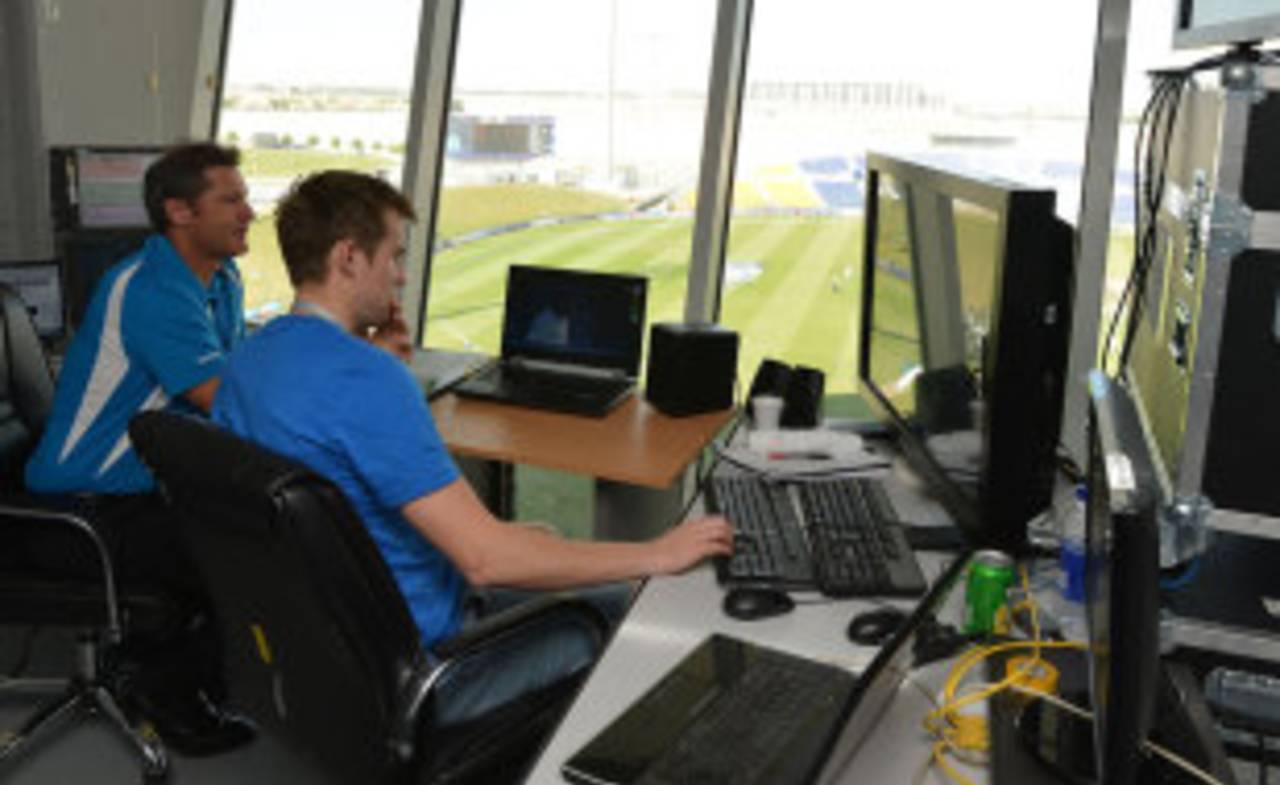Simon Taufel, the ICC training and performance manager for umpires, hopes the Officiating Replay System (ORS) could revolutionise the role of the third umpire, improving efficiency and accuracy in decision-making.
The ORS is an attempt to streamline the existing DRS system by allowing the third umpire control over the replays they see, whereas normally they have to wait for the broadcaster to provide them. It has been in use since the fifth ODI between Sri Lanka and Pakistan in the UAE and has been extended for the two remaining Tests as well.
The chosen official - Taufel for the
first Test - sits in a room with high definition television sets that receive 16 different real-time feeds from the match directly from the broadcaster. The footage may vary according to the video cameras being used for the match. Taufel also has the help of a HawkEye engineer, who is also the effectively his personal TV director.
"It's a separate technology on trial and is independent of what is happening with the third umpire in this Test," Taufel told reporters. "It's a very efficient way of being able to look at replays and avoid communication issues. We're looking at timing efficiency at the moment, accuracy of decision-making as well as being able to standardise some of our technology tools and information so that the third umpire can be as efficient as possible and make as many correct decisions as possible."
The current trial is taking place without any communication with the third umpire S Ravi, who depends on the broadcaster for his replays, which take a minimum of 30 to 40 seconds to retrieve. Using ORS, however, the official is given the same footage in real-time within 5 seconds.
"If I can do a boundary check in five seconds [when] normally for a third umpire to go through to a director and then he shows a replay, will take roughly 30 seconds. It's a huge difference in that respect," Taufel said. "Even a front-foot no-ball check, I could probably do that in two seconds, even before the batsman leaves the square and I have an answer for the umpire. [Without ORS] That could take 30-40 seconds because the director is focused on something else, his broadcast; we're focused on our decision-making.
"Technology changes all the time, cricket changes a lot of the time. Umpiring is all about giving the players the best service, the best umpiring and best decisions possible. This trial fits into that theory."
The ORS might well improve decision-making, but the cost of implementing it could be a topic of debate. Currently, the broadcaster covers the production cost, including that of the DRS. "From an umpire's perspective, we would like to see as many common factors and decision-making tools from place to place, board to board, game to game. It makes our job a lot easier, but we're also aware of the cost implications and things like that have to be worked through."
